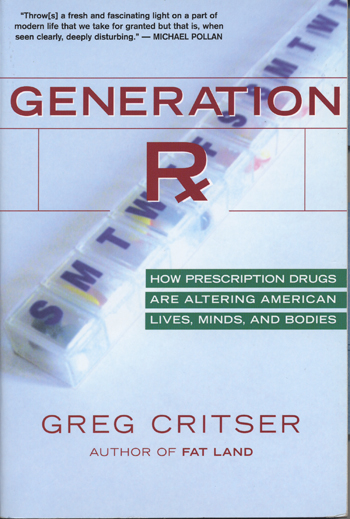In his book Generation Rx: How Prescription Drugs Are Altering American Lives, Minds, and Bodies (reviewed in the last post), Greg Critser includes a quotation from a physician (in a self-help book [1]) that I found really striking:
In your search … you are going to come across physicians who may initially be skeptical of any medication, technique, or new technology that has not already been proven to be successful with an indisputable double-blind study. This would not be the right physician for you. The very essence of Vitality Medicine has to do with flexibility, change, and a willingness to “experiment”.

 I recently finished reading Greg Critser’s
I recently finished reading Greg Critser’s